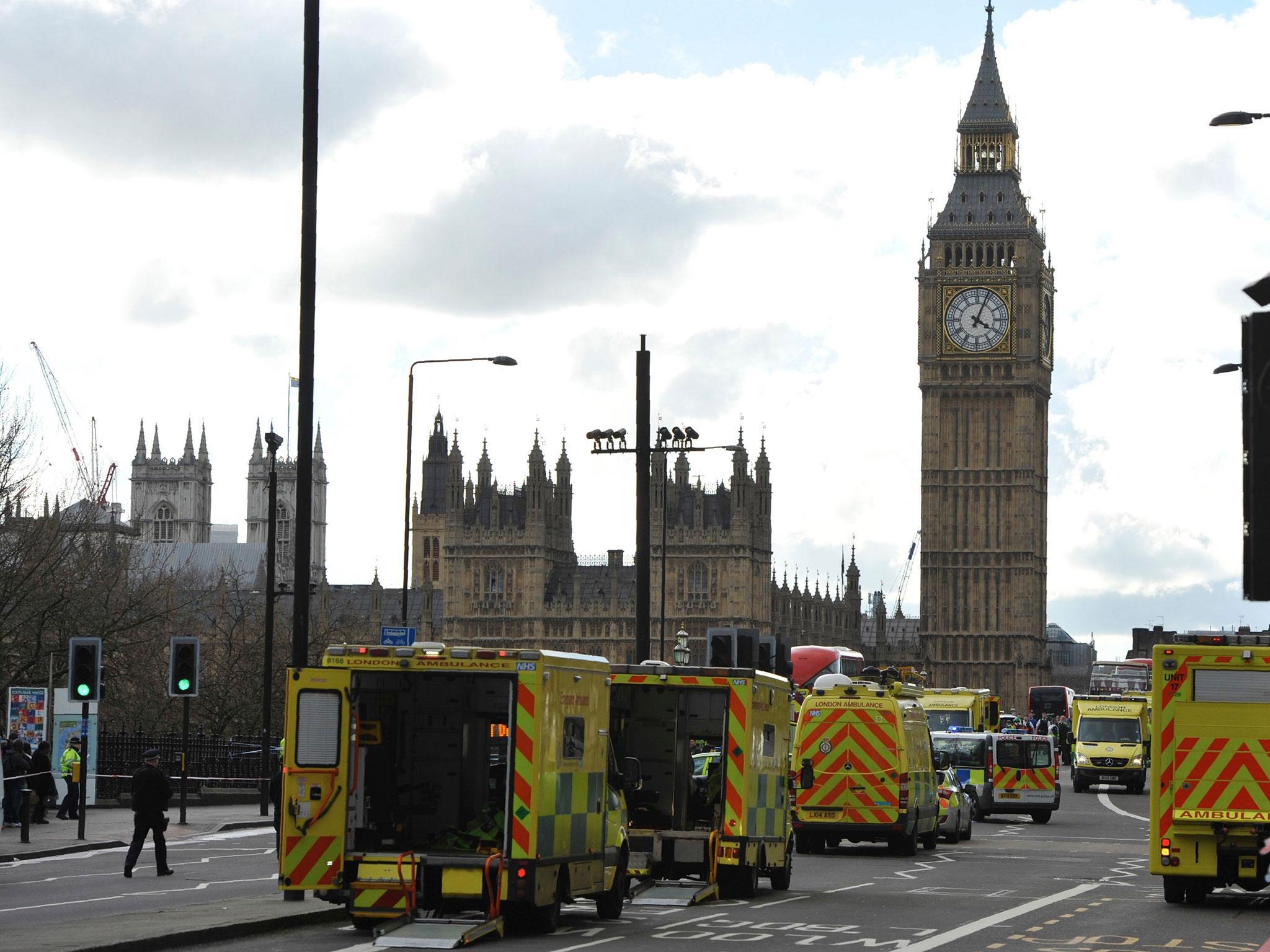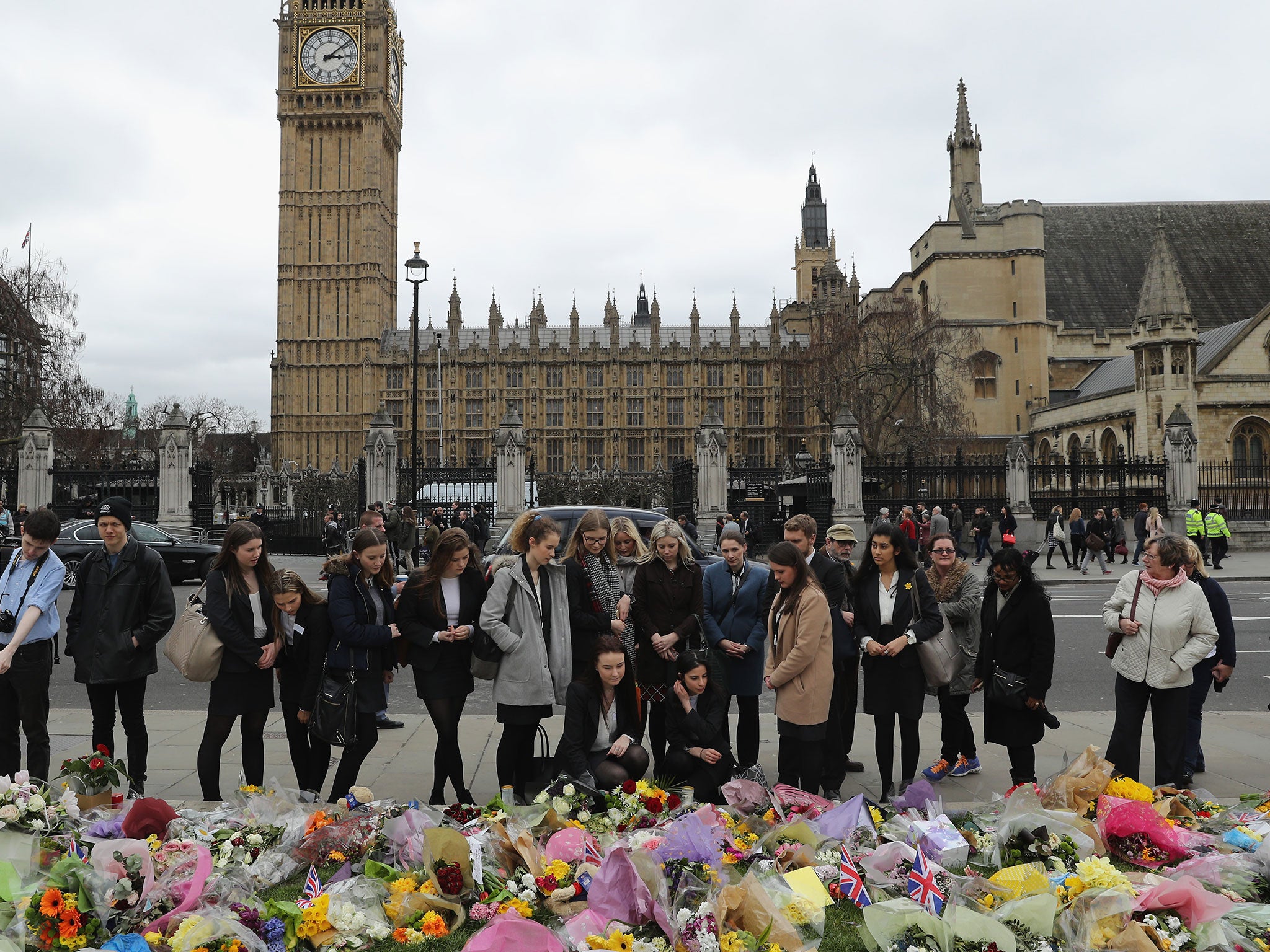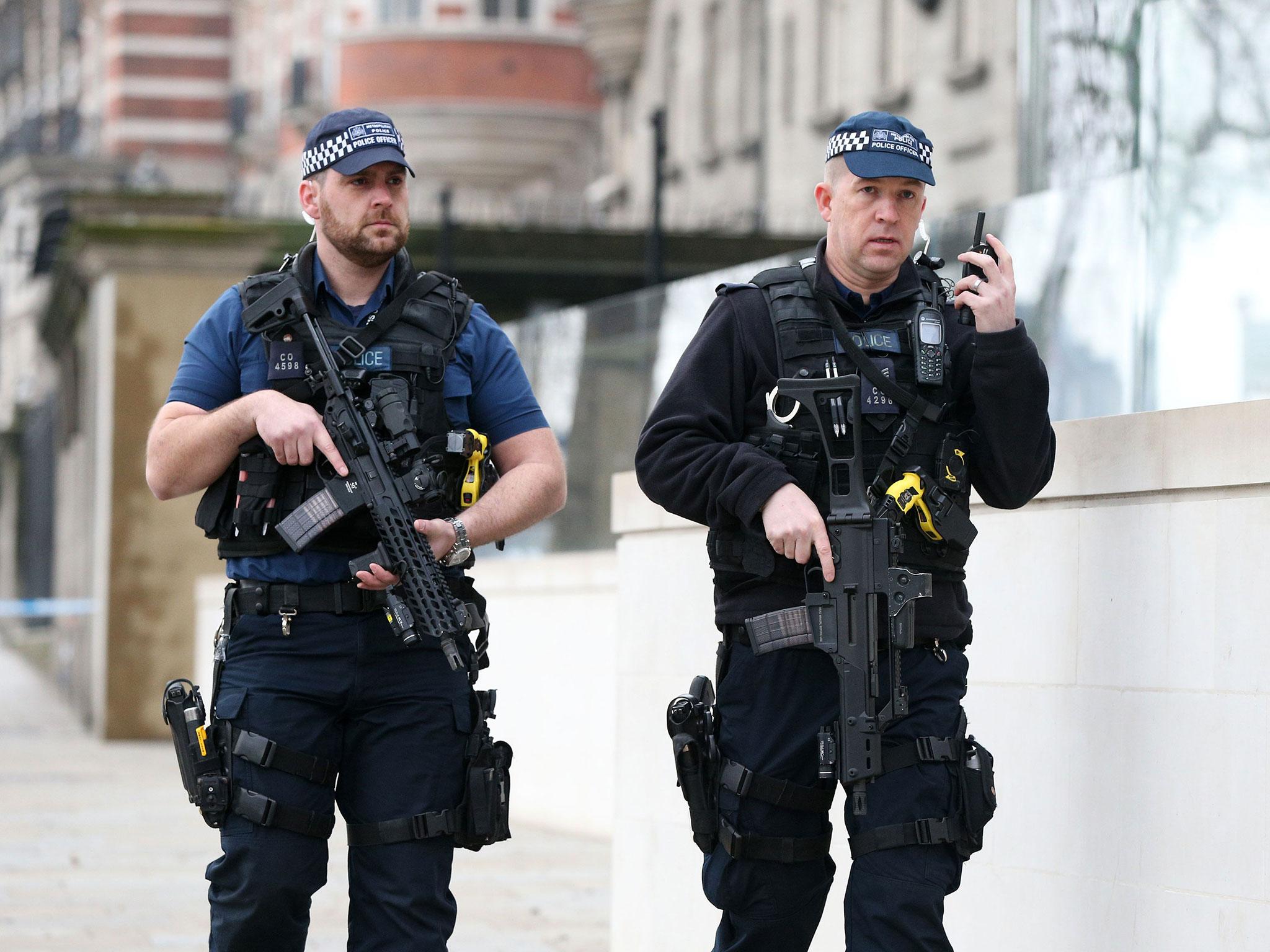Westminster attack: Details of jihadi manifesto sent by Khalid Masood minutes before atrocity revealed
Report by Independent Reviewer of Terrorism Legislation shows 12 suspects arrested following attack but none charged

Details of a jihadi manifesto sent by the Westminster attacker on WhatsApp minutes before launching the atrocity have been revealed in a report that probed why police arrested a dozen potential suspects and then set them free.
Khalid Masood placed a photo of himself on the front page of the document, which was entitled “Jihad” and included extracts from the Quran and other Islamic sources that he claimed to support violence.
A report by the Independent Reviewer of Legislation detailed how police traced the contacts who received Masood’s final message to launch a wave of arrests across the country, starting in Birmingham.
Max Hill QC said investigators initially believed Masood had sent the document to “specific individuals who may be of interest, but it quickly transpired to the police that a large number of individuals received this message and it wasn’t targeted at specific associates”.
The Independent understands that the document did not include a pledge of allegiance to Isis, which claimed responsibility for the Westminster attack in a statement describing Masood as a “soldier of the Islamic State”.
Intelligence investigations found he had researched Isis online, alongside methods of attack using knives and vehicles favoured by its followers, but the discovery raises the prospect that the terrorist group issued its claim opportunistically and without proof of his support.
Masood had been known to security services since 2004, over his links with al-Qaeda supporters and Anjem Choudary’s banned Islamist network, but was not under active investigation at the time of the attack.
A review by Mr Hill’s predecessor found that neither MI5 nor the police had any reason the anticipate the attack, concluding that Masood was “a long way from the top of anyone’s grid”.
The 52-year-old Muslim convert was shot dead after killing five pedestrians on Westminster Bridge with his car and stabbing PC Keith Palmer to death outside Parliament.
The rampage on 22 March 2017 lasted just 82 seconds but left 29 other victims injured, becoming the first terror attack claimed by Isis in the UK.
A report into the ensuing police investigation said counter-terror officers launched a “fast-moving” probe that initially relied on just the items found in the crashed hire car.
Masood’s phone was locked but notifications showed the content of recent messages, while financial information revealed that he had stayed at a hotel in Brighton on the previous night.
The premises were searched, as was a hostel in Birmingham and the homes of friends and relatives in the city and London.
Police arrested 12 people in total – eight men and four women aged between 20 and 58 – but all were later released without charge.
The sweep contributed to a record number of terror arrests recorded in the UK last year, when the Westminster attack was the first of five atrocities to strike London and Manchester.
Mr Hill found “no major fault” with the investigation but made four recommendations for police to improve practices.
“I considered very hard the fact that 12 people were arrested and detained but none were charged, but I reached the conclusion that this was an efficient investigation, and a reasoned and proportionate use of the relevant terrorism legislation,” he told The Independent.
“This this was a standing start, the police had to work with what they found on the bridge on that day and it is extremely important not to apply too much hindsight.”
Those arrested in the wake of the attack included Masood’s ex-wife, who had two young children with the attacker.
In a statement released through police, she said she was “saddened and shocked” by his attack, condemning his actions.
Notifications on the terrorist’s phone showed she had tried to call him on the day of the attack, when she contacted police identifying him as the attacker.
“She stated in interview that she received a text message from Masood with a pdf named ‘Jihad’,” the report said.
“When she saw the incident on Twitter she was worried he might be involved and tried several times to get a hold of him.”
The woman cooperated fully with police and passed on details of Masood’s other associates.
Among them was a 58-year-old man who had also tried to call the attacker and was due to travel abroad with him “imminently”, sparking suspicion that he was complicit in the attack.
He was “initially not forthcoming as to the full extent of his relationship with Masood”, claiming he had only met him weeks before and complained about his arrest and the impact on his children.
One of Masood’s relatives, a 27-year-old man, was also arrested after he refused to hand police his phone because he needed it for work.

Officers uncovered messages the man sent to Masood two hours after the attack reading: “I will take care of her inshallah [God willing]. Ameen. Please give us a call when possible”, and then minutes later: “May Allah grant you peace and honour Ameen.”
Later the same evening, he texted Masood saying he had visited his home: “Khalid... called you and no answer..what is going on? We just knocked for you but no answer.”
The report said the man fully cooperated with police and denied knowledge of the attack, describing himself as a strict Muslim but “ignores the situation in Syria as he finds it too depressing”.
Another man, a 30-year-old associate of Masood was arrested after police found out he had received religious instruction from the terrorist had was “becoming more extreme and talking about jihad”.
Call data showed he had been in contact with Masood in the days and weeks leading up to the attack, and had visited Westminster for unclear purposes earlier in March.
He refused to answer questions in his first police interview on the advice of a solicitor, but later told investigators he met Masood at a gym, describing him as a “mentor who assisted him with his separation and child access issues”.
The man said he had not seen the terrorist for some time before the attack and knew nothing about it.
Four Hungarians who lived at an address where Masood was a former tenant were arrested, but did not know him.
Nor did a man and woman in their 20s living in a homeless hostel, which they moved into hours before being arrested.
Police also detained a Saudi Arabian married couple who were in a “professional relationship” with Masood through his teaching work.

Financial records showed the wife paid a total of £2,100 into Masood’s bank account in the two months before the attack with the reference “friend”, but they told police the payments were for “educational work completed”.
In total, police seized 584 pieces of potential evidence, including 256 electronic devices.
The evidence will be considered in ongoing inquests into the deaths of Masood and his five victims, British mother Aysha Frade, Romanian architect Andreea Cristea, pensioner Leslie Rhodes, American tourist Kurt Cochran and PC Palmer.
Mr Hill said police had fully accepted the findings of his report, which called on officers to give “greater thought” to transporting detainees hundreds of miles from the place of arrest, as was seen following the Westminster attack.
The lawyer, who has himself prosecuted several high-profile terror cases involving Isis and other groups, called on authorities to consider making it possible to release people arrested under the Terrorism Act on bail, make sure detainees are given their rights as soon as possible and review training on how people are questioned on their religion.
“None of them are major criticisms but they present learning opportunities,” Mr Hill said.
“I wanted to present as much information on the public as possible on Masood and his plans.
“There little public information as to what process follows when people are arrested on suspicion terror offences… it’s at the heart of this country’s response to terrorism and there’s a right to understand what police and individuals in their charge go through.”
Amber Rudd, the Home Secretary, said she would carefully consider the report’s recommendations and respond formally in due course.
It was published the day after an independent review into the emergency services’ response to the Manchester attack in May exposed failings by the fire service, which did not respond to the bombing for two hours after “poor communication” with police.
